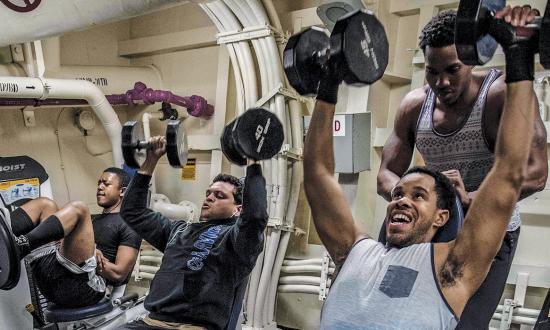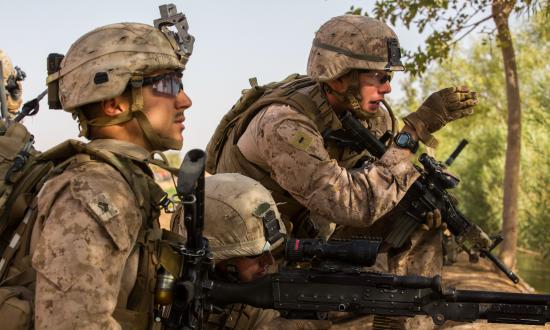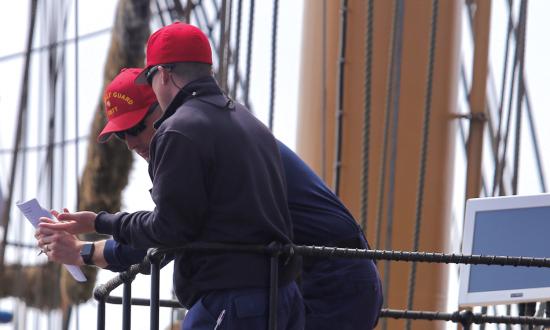At some point, everyone must retire. Each promotion earned buys a few more years but it is an inevitability for all who choose to stay in the Navy. What I have come to realize during my almost 30 years as a Reservist is my only legacy will come from those who have served under me. Have you told your brand-new ensign what an E4 needs for advancement? Do they know the importance of improving their leadership skills? Are they avid readers and/or podcast fans who enjoy discussing what they are learning with their peers? In short, are you mentoring them to go further than you did?
Creating Mentors and Coaches
Nick Saban is often considered the greatest college football head coach of all times. As impressive as his coaching record is, a search of the internet returns numerous stories about his “coaching tree”—coaches who trained under Saban and who became coaches themselves. On the eve of a 2018 National Championship match up between Saban’s Alabama Crimson Tide and the Georgia Bulldogs—whose head coach, Kirby Smart, is a Saban protégé—Forbes writer Don Yaeger suggested that Saban must have been “filled with pride that those he’s worked with are building challenging competitors, largely using the roadmap he has mastered.”
As my retirement approaches, I have been taking stock over my own legacy. I have mentored numerous junior officers who are now senior officers and seen many E6s make chief and beyond—but I have to wonder if those accomplishments are simply bullets for my final end of tour award.
While there is a plethora of leadership resources available to everyone, and we should take advantage of them, none have hit harder than a short essay that was required reading for all engineering duty officers (EDOs) in my day—Elbert Garcia’s “A Message to Garcia.” Written in 1899, it tells the story of a commander who must get a message to Garcia, a rebel leader, during the Spanish-America War. The story is short on the why, what, when, and how, focusing instead on the who—Rowan, a junior officer who steps up, takes the message, and gets it to Garcia, no questions asked.
I often watch up and coming junior officers in my community, comparing them to Rowan. Who can I give the most rudimentary of orders to and know it will be carried out as intended? Who will require more than one round of explanation along the way. Not everyone is a Rowan, but through mentoring we can install confidence in our proteges that will allow them to at least start down the road to Garcia.
I remember being told to collect leadership quotes and jot them down in a notebook at the beginning of my career, and to review them from time to time. This is perennial advice. Not all these quotes were important throughout my entire career. Some were important at one moment in time, others became important later. If a quote seemed important, it was probably not because it was something I was rock-solid at doing, but because it was something I needed to work on.
One such quote was a restatement of a timeless truth: Communicate relentlessly. I think of this quote in relationship to a scene from Michael Shaara’s The Killer Angels (Ballantine Books, 1974), the historical novel of the battle of Gettysburg. Before the first day of the battle, General Robert E. Lee sees the importance of Culp’s Hill, high ground north of Gettysburg. He tells General Richard S. Ewell to take the hill if at all practicable. In Shaara’s retelling, Lee neglected to explain the importance of the hill—he did not communicate relentlessly.1 For the price of the high ground, the turning point of the Civil War was lost to the Confederacy.
Another became the cornerstone of my leadership philosophy through my several leadership tours. When I was given command of a Reserve unit as a newly pinned O3, I asked my reporting senior what he expected of me as a commanding officer (CO). Captain Ralph Malone, CO of the Orlando Navy and Marine Corps Reserve Readiness Center, replied simply, “I expect you to take care of your sailors.” Those words have directed me to this day.
Legacy
For a truly enduring legacy, you must pass on the desire to mentor. Elements of who you are as a leader will not make it to future leaders unless you guide those you mentor to become mentors themselves.
In Forbes, Yeager wrote on Saban’s and Smart’s meeting in the college football national championship game:
All of us should aspire to be somewhere on the spectrum we’ll watch in the game tonight . . . either as a mentor helping to grow others—even if they might one day become our competitor – or as the mentee, soaking up all kinds of goodness and paying our mentor great honor by going out and building something special.
For the junior officers looking for practical leadership advice, I offer the following:
- Take care of your sailors. Know that “taking care of” means something different for every single one of them. It is your job to find out what that is.
- Keep a notebook of leadership thoughts. If a quote strikes you as important, then it is—or it will be.
- Model yourself after Rowan. You may not ever be asked to face peril to get a message to a modern-day Garcia, but if you volunteer for tasks and can at least get started without a lot of guidance, you will make a name for yourself among senior leaders in your community.
- Never assume anyone knows your Observe, Orient, Decide, and Act (OODA) Loop. Communicate your commander’s intent relentlessly—and communicate the why behind it. If your subordinates ever need to make an assumption, and they will, it is important they know why you want them to take Culp’s Hill. Not so coincidentally, this practice builds more Rowans among your subordinates.
- Mentor, and when you do, mentor mentoring. You will not be mentoring those coming into the Navy after you leave, but you can make sure they will be mentored correctly.
As I look at 60, I have realized that what lasts is not the effect I had on those coming behind me. It is the effect I had on those coming behind who will then have an effect on those coming behind them. Take time encourage a love for mentoring in your mentees. You can win championships, which is good, or you can mentor coaches who win championships, which is better. But the real joy comes from mentoring leaders who will go on to mentor the next generation of championship winners.
1. Michael Shaara, The Killer Angels (New York: Ballantine Books, 1974).






